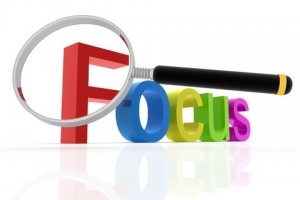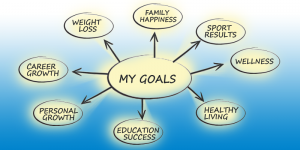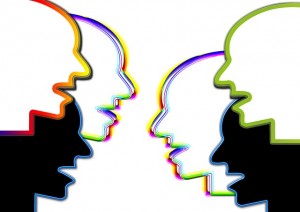by Tor Constntino
 There are no billboards or flashing neon that light the way toward finding your calling or purpose.
There are no billboards or flashing neon that light the way toward finding your calling or purpose.
Very few people instinctively know what they want to do with their life.
For many years I knew I wanted to be an entrepreneur, but I didn’t know exactly what I wanted that to be or look like. I know that’s the case for many individuals who don’t want to work for someone else.
In his latest book, The Art of Work, bestselling author and blogger, Jeff Goins offers some unconventional advice to help you abandon the status quo and kick start a life work that’s packed with passion and purpose. Continue reading

 Before you are able to be good at something and do something important, you must first suck at something and have no clue what you’re doing. That’s pretty obvious. And in order to suck at something and have no clue what you’re doing, you must embarrass yourself in some shape or form, often repeatedly. And most people try to avoid embarrassing themselves, namely because it sucks.
Before you are able to be good at something and do something important, you must first suck at something and have no clue what you’re doing. That’s pretty obvious. And in order to suck at something and have no clue what you’re doing, you must embarrass yourself in some shape or form, often repeatedly. And most people try to avoid embarrassing themselves, namely because it sucks. Back in the 1960s Dr. Paul D. Maclean devised the Triune Brain model as a way to explain the brain’s evolution while reconciling rational human behavior with more primal and violent outbursts. The Triune Model suggests three parts to the brain:
Back in the 1960s Dr. Paul D. Maclean devised the Triune Brain model as a way to explain the brain’s evolution while reconciling rational human behavior with more primal and violent outbursts. The Triune Model suggests three parts to the brain: Scientists John Gaspar and John McDonald from Simon Fraser University in British Columbia have recently discovered that we have an anti-distraction mode in our brain. This means that focusing on what matters moment-to-moment is not only about intentionally paying attention to something, like reading this blog post or listening to a friend, but also about suppressing all of the distractions in the background.
Scientists John Gaspar and John McDonald from Simon Fraser University in British Columbia have recently discovered that we have an anti-distraction mode in our brain. This means that focusing on what matters moment-to-moment is not only about intentionally paying attention to something, like reading this blog post or listening to a friend, but also about suppressing all of the distractions in the background. Conventional wisdom dictates that we must set clear goals and have vision if we are to achieve great things. After all, how can we ghetto where we are going if we do not know where we want to go? Now ask, who is setting the goals and who is creating the vision?
Conventional wisdom dictates that we must set clear goals and have vision if we are to achieve great things. After all, how can we ghetto where we are going if we do not know where we want to go? Now ask, who is setting the goals and who is creating the vision? On Wednesday, November 5th I received numerous phone calls from a variety of people. The first ring came just before 5 a.m., and the exchanges continued throughout the day. Why so many calls, you might wonder? I was contacted repeatedly that Wednesday because people simply had to ask, “Well, it’s over. How do you feel? Did your person win? Are you celebrating? Are you sad?” Most of my friends here in South Africa already knew which United States Presidential Candidate I voted for (…Kristen and I had to mail our absentee ballots weeks before), so they knew how I was feeling that particular post-election day. Yet, for those who did not already know, they were anxious to hear who I did vote for and what my reaction was to the announced results.
On Wednesday, November 5th I received numerous phone calls from a variety of people. The first ring came just before 5 a.m., and the exchanges continued throughout the day. Why so many calls, you might wonder? I was contacted repeatedly that Wednesday because people simply had to ask, “Well, it’s over. How do you feel? Did your person win? Are you celebrating? Are you sad?” Most of my friends here in South Africa already knew which United States Presidential Candidate I voted for (…Kristen and I had to mail our absentee ballots weeks before), so they knew how I was feeling that particular post-election day. Yet, for those who did not already know, they were anxious to hear who I did vote for and what my reaction was to the announced results.  One of the most important skills to cultivate for improving communication and deepening relationships is heart-centered listening. Although the art of listening is easy to learn, it seems very few of us have actually learned it well. Perhaps one reason for this circumstance is that many of us believe we listen well, when in fact, rather than being present and listening from our hearts, we’re busy thinking about what we’re going to say next or thinking about other things.
One of the most important skills to cultivate for improving communication and deepening relationships is heart-centered listening. Although the art of listening is easy to learn, it seems very few of us have actually learned it well. Perhaps one reason for this circumstance is that many of us believe we listen well, when in fact, rather than being present and listening from our hearts, we’re busy thinking about what we’re going to say next or thinking about other things. To speak truth, we must seek truth. Truth-seeking requires persistence and humility. When we seek truth in any form, we are seeking to understand some small aspect of the Reality that created and encompasses us all. A commitment to truth-seeking will sometimes takes us outside our comfort zone, obliging us to admit things we would rather deny or calling us to difficult action.
To speak truth, we must seek truth. Truth-seeking requires persistence and humility. When we seek truth in any form, we are seeking to understand some small aspect of the Reality that created and encompasses us all. A commitment to truth-seeking will sometimes takes us outside our comfort zone, obliging us to admit things we would rather deny or calling us to difficult action. We ran up the stairs, our heels clicking over wooden floors and down again, clattering against the back metal stairs where we found Deepak Chopra climbing out of the Hertz rental hybrid supplied just for this occasion. The driver had taken Chopra to the wrong entrance so a colleague and I rushed to meet and welcome him to the WIE Symposium. Chopra had just gotten in from Boston where he’d met with 2,000 cardiologists.
We ran up the stairs, our heels clicking over wooden floors and down again, clattering against the back metal stairs where we found Deepak Chopra climbing out of the Hertz rental hybrid supplied just for this occasion. The driver had taken Chopra to the wrong entrance so a colleague and I rushed to meet and welcome him to the WIE Symposium. Chopra had just gotten in from Boston where he’d met with 2,000 cardiologists.